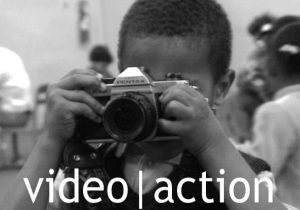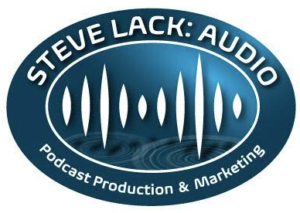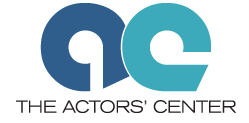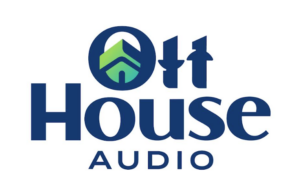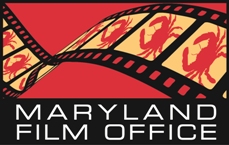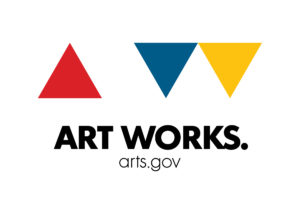By Kathy M. Dismukes
Fundraising for films isn’t easy, but neither is filmmaking. Luckily, these pursuits have more in common than you might think. Here are some tips on film fundraising that will give you a leg up, especially if you’re going to attend WIFV’s September Wednesday One at the Foundation Center.
But I’m a filmmaker, not a fundraiser!
 Do you want to make your film? Then you are a fundraiser. Fear not! You already have a lot of what you need for success:
Do you want to make your film? Then you are a fundraiser. Fear not! You already have a lot of what you need for success:
- Storytelling ability and creativity
- Project management skills
- Ability to cultivate relationships
Fiscal Sponsorship
First, it’s critical that you understand foundations, corporations, and other entities hardly ever fund individual artists. You will need a fiscal sponsor. I recommend the WIFV Fiscal Sponsorship Program, “a financial and legal system where our 501(c)(3) public charity provides limited financial and legal oversight for a project initiated independently by a filmmaker.” WIFV does a lot more than other fiscal sponsors, including helping identify prospects, reviewing proposals, and being a source of inspiration and encouragement.
How do I start?
If you do your fundraising planning as you’re planning your project, you’ll be able to identify funding opportunities throughout the project life cycle. How about some start up funds? (WIFV helps here! Check out the Documentary Seed Fund.) You can break your project up into many “fundable” parts. And remember, you don’t have to ask for dollars alone. Here are just a few ideas:
- Grants for:
- Subject matter research
- Production
- Finishing funds
- Outreach campaign
- Discussion guide
- Donation of or discount on cameras, lights, audio, or other gear
- Discount on space or other costs for fundraising events (e.g., a band, DJ, door prizes)
- Donation of crowdfunding benefits
- Discount or pro bono professional fees (e.g., legal, web design)
There are more funding resources than ever before, and there’s money out there for everyone.
Check out the free version of the Foundation Directory, and you’ll see just how many subject areas and issues there are funders for, and the information isn’t limited to foundations. If you go to the Foundation Center in person, you can use all of their databases for free! In addition to databases, they have an entire library that covers all aspects of the philanthropic process and best practices. Here are some tips for the main funder types:
- Film grantors – Be sure to check out the smaller grantors. Everyone and her sister is going for Sundance, Tribeca, and ITVS grants.
- Foundations – Check out the smaller and family foundations. In addition to Ford and MacArthur, there are thousands and thousands of other foundations in this country (and abroad!).
- Corporations – Did you know there might be at least two pots of money in a company? Many will have a budget for both marketing and CSR/community. And, many have corporate foundations and/or CEO discretionary funds.
- Organizations – There are all kinds of trade associations, coalitions, and membership groups (e.g., Jaycees, Junior League). Some have grant programs, others give in a more informal way.
- Individuals – Don’t be afraid to ask specific individuals for funding, but treat them as you would any other grantor. Present a written request that maps out exactly what you will do with the funds and how their support will help the film make an impact. You will also want to provide them with regular project updates. An executive producer credit may be very attractive.
- Crowdfunding – There are a lot of options here. As I understand, the best options for filmmakers currently are Indiegogo, Seed & Spark, and Junction.
Write it all down and stay organized.
More good news! The language you develop to talk about your film for your elevator speech, website, social media, and marketing materials can do double duty. Be sure to develop a collection of boilerplate language that you can refer to and build on. Organize this in a Google Docs or other folder structure, because you will need it over and over. You don’t want to have to try to find that good thing you said in the fifth version of a proposal to the X Foundation (or was it the Y Foundation?), do you? The minute you come up with a great phrase or paragraph, put it into your boilerplate library and use a naming convention to enable you to find it again. Regarding funding, count on developing language for these core documents and more:
- Logline
- Film description in 25 words, 40 words, 125 words, etc.
- One-paragraph description
- One-page description
- Director’s statement
- Treatment
- Proposals of various lengths
- Website content
- Social media profiles
- Project update emails
- Grant reports
Good luck with your efforts! Let Melissa Houghton know if you want to see more on fundraising. I could write a post on any one of the bullet points above if there’s demand.
Kathy Dismukes is the founder of Pintail Productions, a new Washington, DC area media production enterprise. Pintail Productions helps companies, associations, and nonprofits make strategic, effective use of both traditional video and new formats like 360 and AR. Kathy is also an impact producer and consultant specializing in fundraising, partnership building, and community outreach for films and nonprofits. A Women in Film & Video member since 2007, she served for two terms on the board of directors, including as Treasurer and VP of Development.


